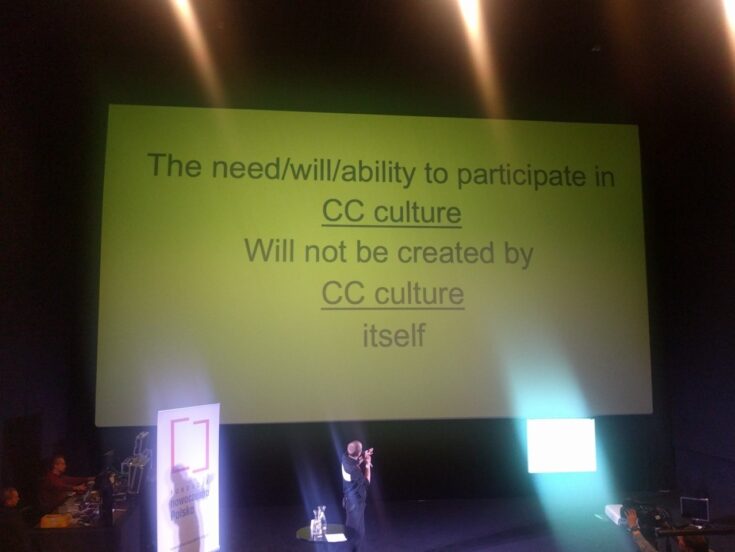Near Now Fellow Antonio Roberts travelled to Warsaw, Poland to take part in CopyCamp and progress his Fellowship R&D, which looks at automation and copyright.
Now in its sixth year, CopyCamp is an annual gathering of people interested in copyright.
The primary goal of CopyCamp 2017 is to broaden the scope of the debate about exclusive rights. We want to talk about culture, science, and education, but we also want to discuss how exclusive rights are used in, for example, health and food.
I was there to talk about my exhibition, No Copyright Infringement Intended, and how it gives insights into how creative digital practices are conflicting with copyright laws. At first I was worried that my presentation wouldn’t be scientific enough but the response from the audience was very positive, and additionally it can be seen from the lineup that the organisers made a real effort to have a range of backgrounds represented i.e. not just lawyers!
Here's my presentation:
Aside from presenting, I was there on a research mission to find out what current and proposed laws have to say about, amongst other things, automation and copyright. A lot has been written about how Artificial Intelligence (AI) is set to change how we create a and receive art. Below are a few of the highlights from CopyCamp that address this issue in some way.
Jarosław Lipszyc - CopyCamp 2017
One of first presentations of the conference gave a really good introduction into the complexities of the free culture movement. Copyright in itself is a difficult topic, and the many different licences for free culture do not change this.

Lipszyc shows some of the many licences and how some are incompatible with others. How can we increase engagement in this area if it’s so difficult to grasp?
Martyna Czapska - Do Androids Dream of Copyright?
Is authorship only reserved for human beings? Czapska at the beginning of her presentation makes a very useful distinction between computer assisted works and computer generated works. There could be some confusion between the two, and it appears to revolve around how much the computer had in the creation of the artwork.

The UK law states that copyright is assigned to the person that created the program or script.
In talking about how Polish law currently doesn’t have the same provisions [as the UK], Czapska asks should the copyright stay with the programmer or the user? After all, a program is dormant until someone activates it. Should the user who activated it or gave it data have copyright over the thing it created?
Ariele Elia - Appropriation in Fashion: Where to Draw the Line
Although not directly related to copyright, Elia’s presentation was a fantastic and well thought-out look at the problems with appropriation in fashion. Elia highlights how fashion designers have been borrowing from cultures other than their own and how it can be problematic when those designers aren’t sensitive towards those that they’re borrowing from, especially with regard to how their new creations are displayed in a new context.

In thinking about AI I wonder if we need to train machines and programmers to be culturally aware when they are creating things through algorithms.
Piotr Płucienniczak - Rozdzielczość Chleba: art, culture and publishing beyond property
One of the last presentations of the conference was a very good insight into how artists engage - or do not engage - with copyright. He talks about how in the start of his collective he would publish all of their works under creative commons licences.


However, few of the other artists cared about this and this did not encourage the work to be remixed by others.

